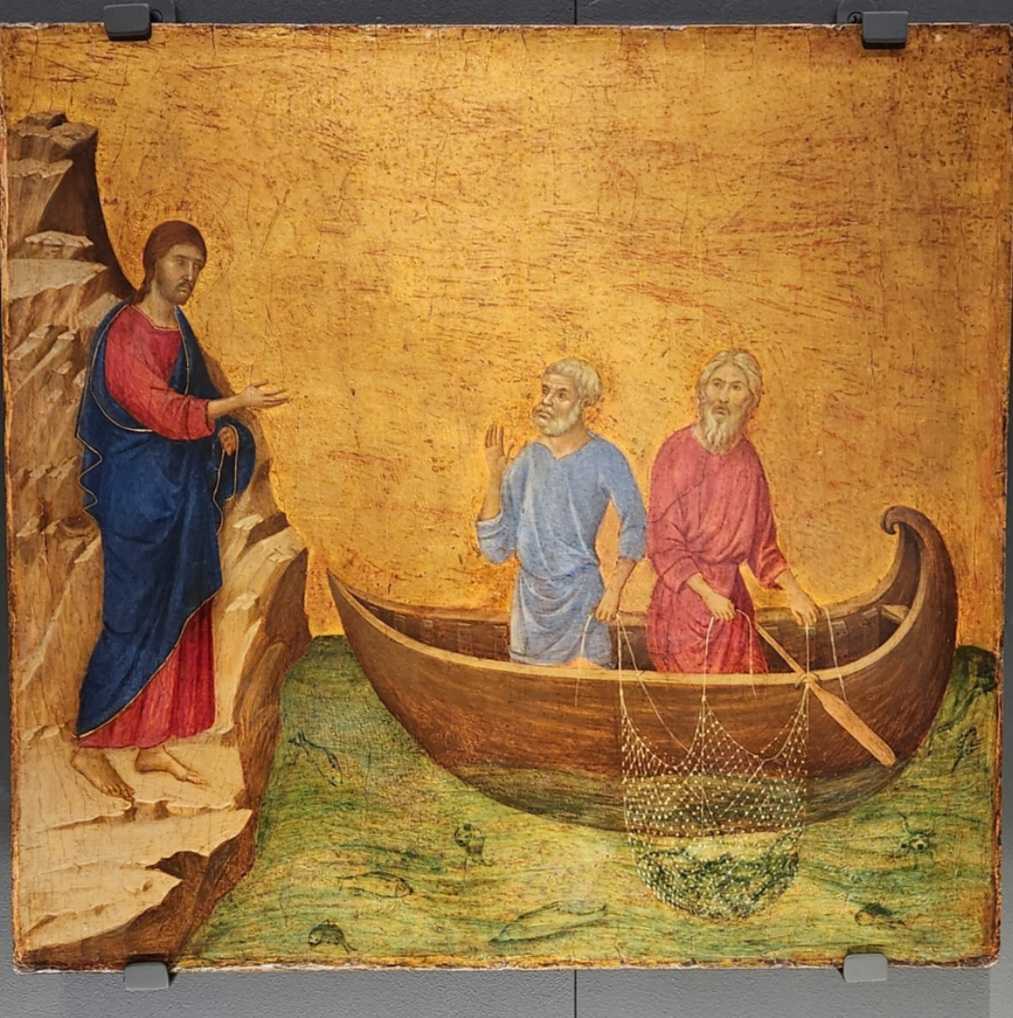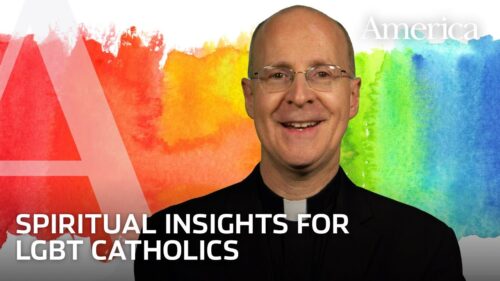This essay first appeared in our weekly Scripture reflection newsletter on February 8, 2025.
When people visit the Holy Land, they are often surprised that while we don’t know the precise location of some of the Gospel stories, we know others. At least I was surprised! To take the simplest example, the Sea of Galilee is still the Sea of Galilee. On the other hand, where exactly did Jesus heal the woman with the hemorrhage (Mk 5:25-34)? Most likely somewhere near the town of Capernaum, though the precise location is unknown. (Today a stone marker stands roughly at the location.)
In today’s Gospel, Jesus meets Simon and Andrew, who are described as “washing their nets.” And the most likely place for that encounter is a spot, not far from Capernaum, that was called Heptapegon (Greek for “Seven Springs”), and is called today, in Hebrew, Tabgha. There, seven freshwater springs gush from the side of a stone cliff into the Sea of Galilee. It is the most likely place for two fishermen to do their “washing.”
This homey detail is a reminder that Jesus is dealing with real people, in a real place and in a real time. And so, when he asks them, after a long and unsuccessful night of fishing (thus, the post-fishing washing up) to “put out into deep water” and try again, we can imagine their initial responses—which I’ll bet were some variation of: “You’re kidding, right?” After all, this is a carpenter from land-locked Nazareth telling two fishermen that, in essence, he knows better.
What enables Peter to say, “Master, we have worked hard all night and caught nothing, but at your command I will lower the nets”?
What enables Peter to say, “Master, we have worked hard all night and caught nothing, but at your command I will lower the nets”? Well, by this point in Luke’s Gospel, Jesus has already healed Peter’s mother-in-law. And if we consider the Gospel of John, we can surmise that Peter may have met Jesus earlier, thanks to his brother Andrew, in the company of John the Baptist (Jn 1:40-42). Thus, Jesus was probably not unknown to Peter, even though this is the first time he is named in Luke’s Gospel.
What enables Peter to try again is what enables us to try again in the face of overwhelming odds and, as in Peter’s case, initial failure. “We have worked hard all night and caught nothing” could be something that all of us could say in different circumstances. It perfectly describes the feeling over failures to affect the changes we have worked hard for in our family, in our church or in our nation. And notice that Peter is not sugarcoating anything: “We have caught nothing.”
We know the rest of the story, often called the “Miraculous Catch of Fish.” Peter and Andrew (his brother is unnamed in this passage) try again and catch so many fish that not only do their nets almost tear, but they have to call James and John to bring their boat to help with the immense number of fish they caught.
“We have worked hard all night and caught nothing” could be something that all of us could say in different circumstances.
Then, in the face of this great miracle, Peter is seized with a sense of his unworthiness. As Bill Creed, S.J., once said, referring to the First Week of the Spiritual Exercises, “In the sunshine of God’s love, we see our own shadows.”
Why this sudden recognition of Jesus’s identity? Peter probably witnessed his mother-in-law’s healing and perhaps chalked it up to some strange magic that he didn’t understand. But fish? Fish he knew. Jesus is, then, doing a miracle in Peter’s language. Meeting him where he is.
God does the same for us—meeting us in our own circumstances, difficult, tiresome and onerous as they may be, and says, “I know how hard it is to do good. Try again. I’m with you.” And when we do so, when we listen to the voice of hopeful encouragement, we can often do more than we can imagine, and our nets, and the nets of those around us, burst with graces and blessings that we could have never predicted.
God does the same for us—meeting us in our own circumstances, difficult, tiresome and onerous as they may be, and says, “I know how hard it is to do good. Try again. I’m with you.”
In the play “The Last Days of Judas Iscariot” by Stephen Adly Guirgis, which puts Judas on trial for the death of Jesus, there is a beautiful monologue by Peter. He stands before the audience, alone, and describes this very passage. It’s written in Guirgis’s typical streetwise style. Towards the end comes a line that I always remember when I think of God’s promises.
“All I can say is, I’m a damn professional commercial fisherman,” says Peter. “Nobody knew the Sea and its tides better than me. There weren’t no fish out there…but…that’s because it turned out they was all in my net.”




